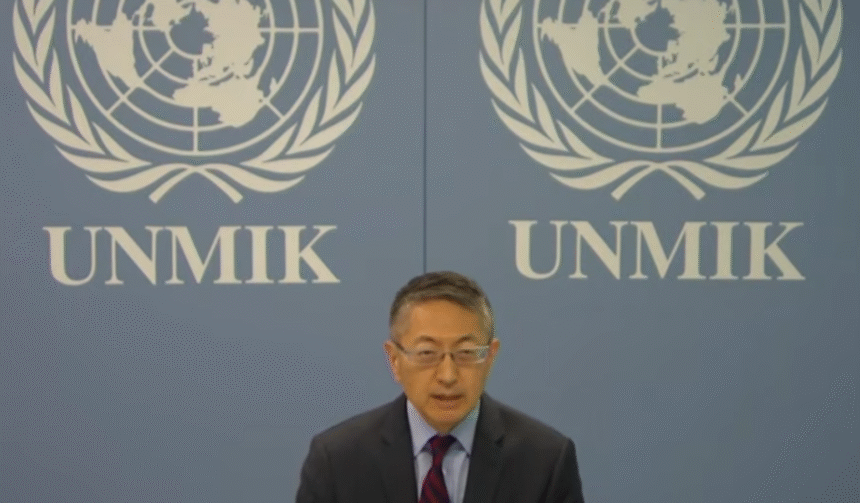During a meeting held at the United Nations headquarters, the UN Security Council reviewed the current situation in Kosovo, with particular emphasis on the political divisions that have hindered the normal functioning of state institutions. The report of Secretary-General António Guterres and the presentation by UNMIK representatives highlighted institutional challenges, the need for a sustainable dialogue between Pristina and Belgrade, and concerns about access to basic services for non-majority communities, reports EO.
Deputy Head of UNMIK, Milbert Dongjoon Shin, underscored the institutional difficulties in the country, including the incomplete constitution of institutions following local elections.
“As we await candidates and participating lists this year, only one municipality will be led by a woman. I hope local administrations will be formed to serve all residents. Local governments are closest to the people, and their effective functioning helps translate citizens’ voices into actions that shape everyone’s daily lives,” Shin stated.
He welcomed meetings between Pristina and Belgrade, stressing the importance of dialogue in resolving outstanding issues.
Since the elections in February, political divisions among parties have prevented the constitution of the Assembly and the formation of a government — the main obstacle to the functioning of central institutions. On October 10, with the election of the Serb deputy speaker, the Assembly was declared constituted. Shortly after, ten Assembly members — including nine from the Serb party “Kalista” — contested the decision before the Constitutional Court.
“While awaiting the Court’s ruling, we reiterate that respect for judicial independence remains a cornerstone of a democratic society. We also express hope that, in line with the Court’s final decision, political divisions can soon be overcome so that the people of Kosovo are represented and served by their own institutions,” the UNMIK official added.
He reaffirmed support for the dialogue meetings held in June and September between Belgrade and Pristina in Brussels, calling on both parties to avoid actions that could undermine trust and to address outstanding issues constructively and in good faith under the EU-facilitated framework led by Special Representative Peter Sørensen.
Shin also voiced concern over the impact of new legal measures and the closure of Serbia-run institutions on access to essential services for non-majority communities.
He welcomed the July meeting of the Working Group on Missing Persons, chaired by the International Committee of the Red Cross, emphasizing that sincere engagement to clarify the fate of missing persons and provide comfort to their families remains a noble and vital humanitarian effort.
“Earlier this year, Kosovo authorities enabled many residents holding documents from Serbia-run institutions to regularize their status within Kosovo’s system — a positive step. We encourage the authorities to establish a more sustainable path for civil registration so that all members of non-majority communities can obtain necessary documents and enjoy equal access to services,” Shin said.
He urged Kosovo’s authorities to engage sincerely with all communities to prevent escalating tensions and to ensure inclusion and equality.
“Kosovo authorities recently announced that full implementation of the Law on Foreigners and the Law on Vehicles will begin on November 1. This may create administrative challenges affecting access to essential rights and services, including healthcare, education, and employment. This is especially concerning for long-term residents from non-majority communities who still face difficulties obtaining required documentation. These matters must be part of renewed efforts to find suitable solutions.”
He also emphasized the importance of genuine consultation before implementing measures that impact citizens’ daily lives, encouraging the government to explore feasible alternatives to avoid or minimize negative effects.
“We value the continued efforts of the EU Special Representative in Pristina to engage with authorities and affected communities to mitigate the impact of decisions that primarily affect non-majority communities,” Shin concluded.
“In my discussions with political, religious, and community leaders, as well as civil society representatives from all communities, interlocutors have consistently stressed the importance of dialogue in building trust and managing these complex issues.”







